Blog
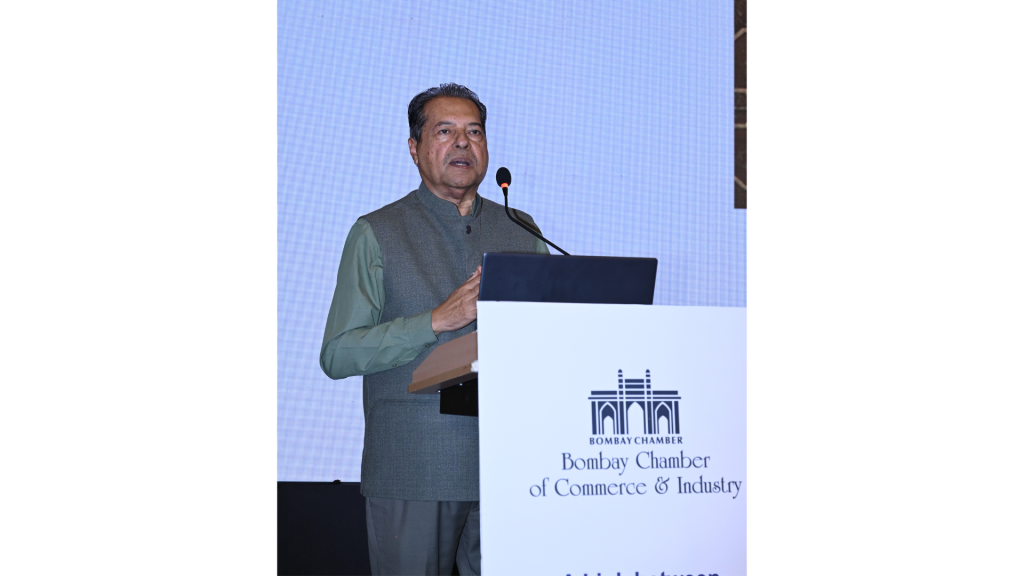
Mumbai:
At the recent CSR Conclave 2025 organised by the Bombay Chamber of Commerce & Industry, Dr Bhaskar Chatterjee, former Secretary to the Government of India and currently Senior Advisor at Deloitte India and Dua Consulting, delivered a compelling address on the evolution and future of Corporate Social Responsibility (CSR) in India. The Conclave was themed Beyond Giving: Responsible CSR and Due Diligence.
Widely regarded as one of the architects of India’s CSR framework, Dr Chatterjee, who was the Guest of Honour at the Conclave, reflected on the past decade of progress and the road ahead. He began by acknowledging the Chamber’s role in fostering dialogue around CSR and revisited the origins of India’s CSR legislation.
Unlike its Western counterparts, India’s approach was shaped by a distinctly Bharatiya ethos, one that embedded social responsibility into the corporate fabric through legal mandates. Dr Chatterjee questioned the initial scepticism surrounding the legislation and highlighted how its unique features, such as board-level oversight and the requirement to allocate a percentage of profits (PoP) to CSR activities, have helped institutionalise the practice.
A key theme of his speech was the importance of linking CSR spending to profitability, thereby ensuring that companies contribute meaningfully without compromising financial stability. He emphasised the role of India’s vast network of non-governmental organisations (NGOs) and civil society organisations in executing CSR programmes, noting that their involvement has been instrumental in reaching underserved communities. Transparency and accountability, he argued, must remain central to CSR efforts, with companies publicly declaring their initiatives and outcomes.
Dr Chatterjee outlined the project-based approach that has become standard in Indian CSR –beginning with baseline surveys and need assessments, followed by structured funding, documentation, monitoring and social impact evaluation. This method, he said, has enabled companies to measure outcomes more effectively and align their efforts with community needs.
The growth of CSR in India has been significant. From just 8,000 companies participating a decade ago, the number has surged to over 28,000. Correspondingly, annual CSR spending has risen from ₹10,000 crore to ₹36,000 crore. Dr Chatterjee projected that this figure could reach ₹50,000 crore by 2030, provided the sector continues to innovate and expand its reach. He noted the emergence of academic programmes and professional courses in CSR as a positive sign of its growing legitimacy and impact.
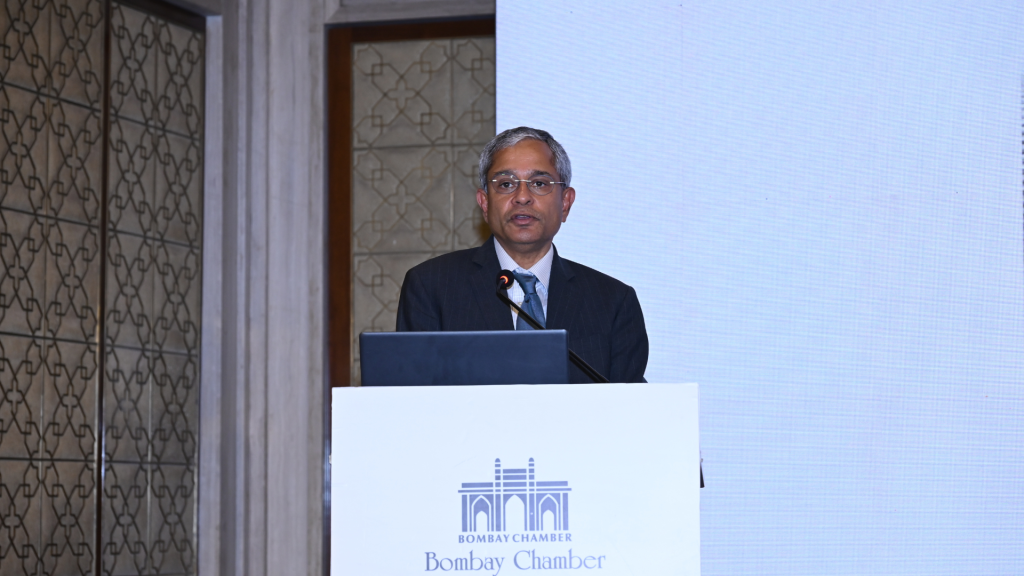
In his welcome address, Rajiv Anand, President, Bombay Chamber, President, Bombay Chamber and MD & CEO, IndusInd Bank said, “Maharashtra has always been a land of enterprise, innovation, and social consciousness. The state’s growth story has been defined not only by industrial progress but also by its commitment to inclusive and sustainable development. And CSR has played a pivotal role in this journey, complementing government efforts and strengthening communities across the state. “
He added, “Despite progress, several challenges remain like the uneven distribution of CSR funds, with urban and already-developed states receiving more. Inadequate focus on outcome vs. output; underutilisation of funds by many eligible companies and limited capacity of smaller NGOs to meet compliance requirements.”
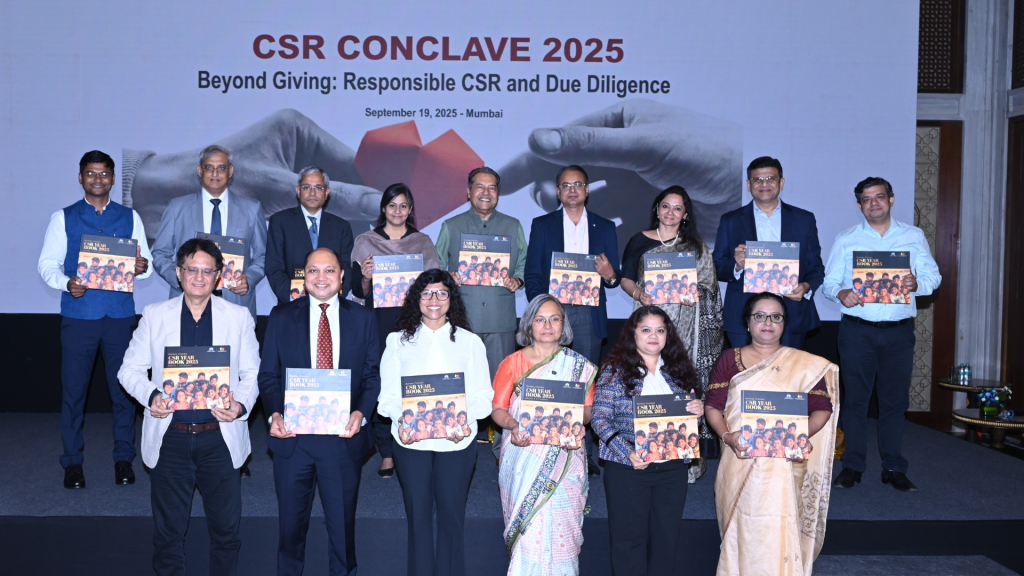
The highlight of the Conclave was the release of the Chamber’s first edition of the CSR Year Book which featured CSR case studies of 12 projects of leading corporates including Aditya Birla Capital Foundation, Ambuja Foundation, Axis Bank, Deutsche Bank AG, Godrej Consumer Products, Hindustan Unilever Limited, HSBC India, IndusInd Bank, Kotak Mahindra Group, Larsen & Toubro, Mahindra and Mahindra and Siemens.
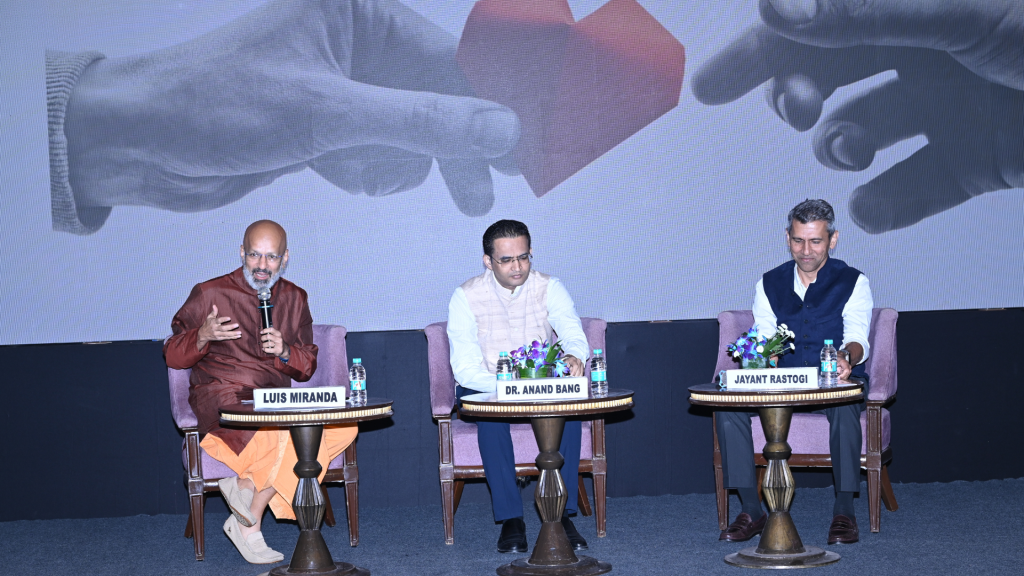
The Conclave saw an reputed line up of speakers and thought leaders. A Fireside Chat between Luis Miranda, Chairperson and Co-Founder, Indian School of Public Policy and Chairperson, CORO India; Dr. Anand Bang, Advisor to CM, Govt. of Maharashtra and Jayant Rastogi, Global CEO, Magic Bus India Foundation focused on Aligning Purpose with Practice: CSR and Due Diligence. They outlined what corporates should do to be compliant and transformative and stressed on the need to encourage grassroots organisations.
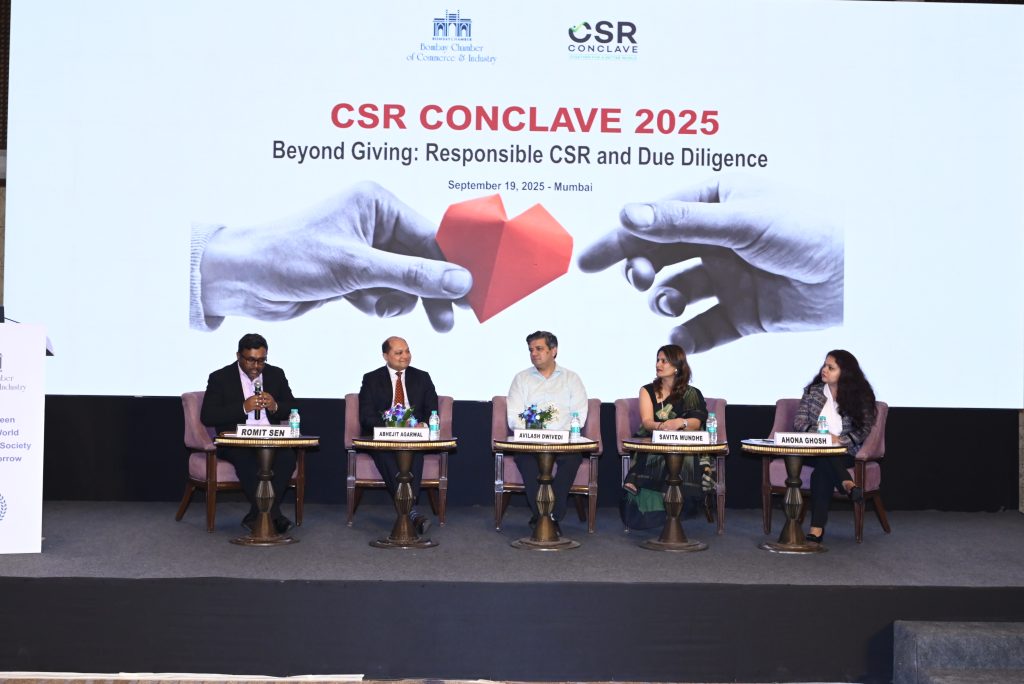
There were also two panel discussions. The panel on Risk Assessment and Grantee/Partner Selection was moderated by Romit Sen, Senior Vice President, Sustainability, HSBC India and the panelists included Abhejit Agarwal, Senior Vice President & Head – Sustainability and CSR, Axis Bank; Avilash Dwivedi, CSR Head, Mahindra & Mahindra (Automotive and farm Sector); Savita Mundhe, Head – CSR School Education, JSW Foundation and Ahona Ghosh, General Manager – Sustainability, Godrej Consumer Products.
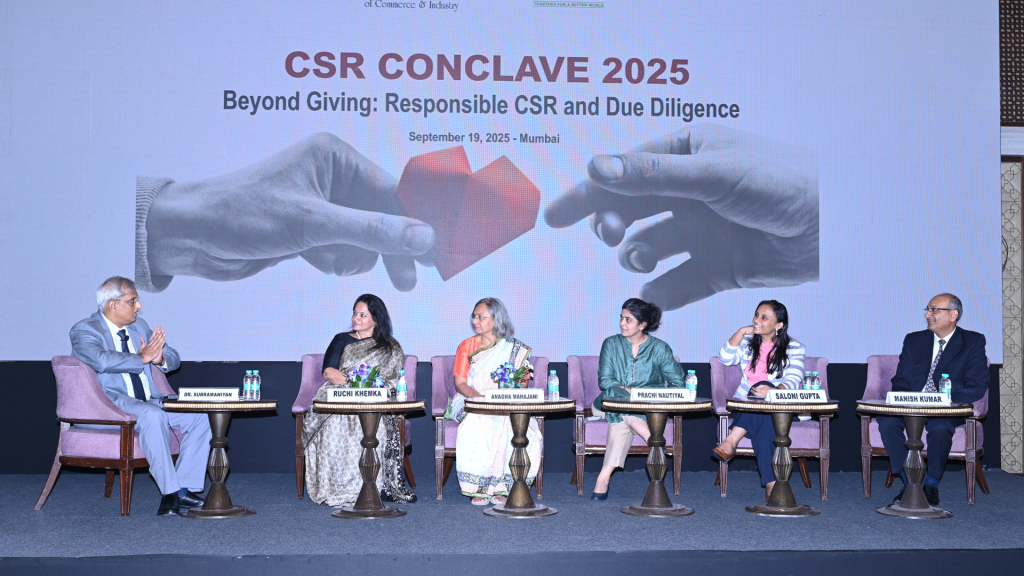
The second panel was on Call for a Robust Monitoring & Evaluation System for CSR Projects saw panelists Ruchi Khemka, CSR Head, Deutsche Bank AG; Anagha Mahajani, Chief Impact Officer, Ambuja Foundation; Prachi Nautiyal – Vice President, Grant Management, Workplace Campaigns, Impact Assessment, United Way of Mumbai; Saloni Gupta, Regional Head (Corporate Advisory), Sattva and Manish Kumar, Head – ESG & CSR, ICICI Bank. The moderator was Dr Anantharaman Subramaniyan, Vice President – Head of Strategy, Sustainability, CSR at Siemens, Executive Coach & Mentor.








